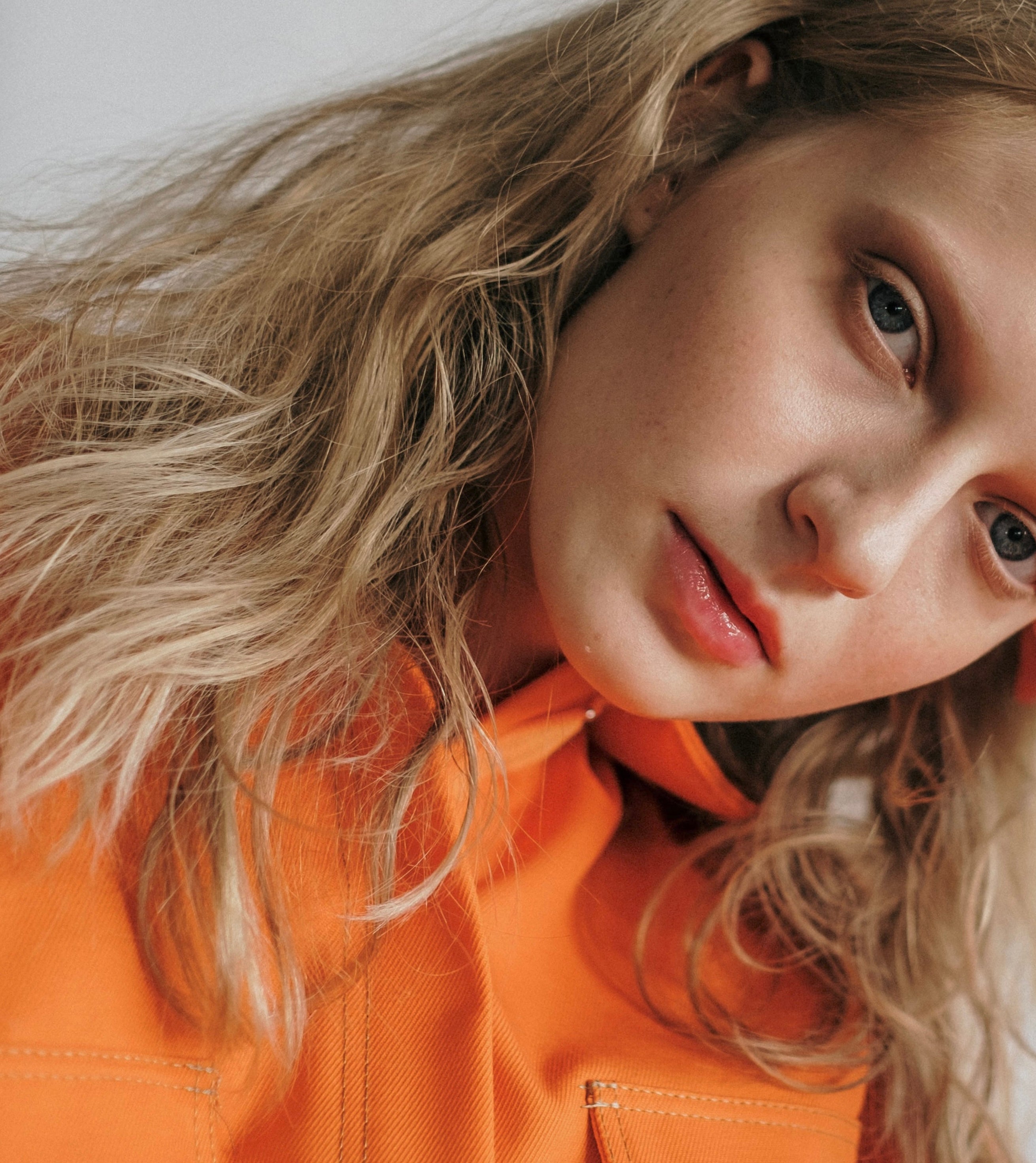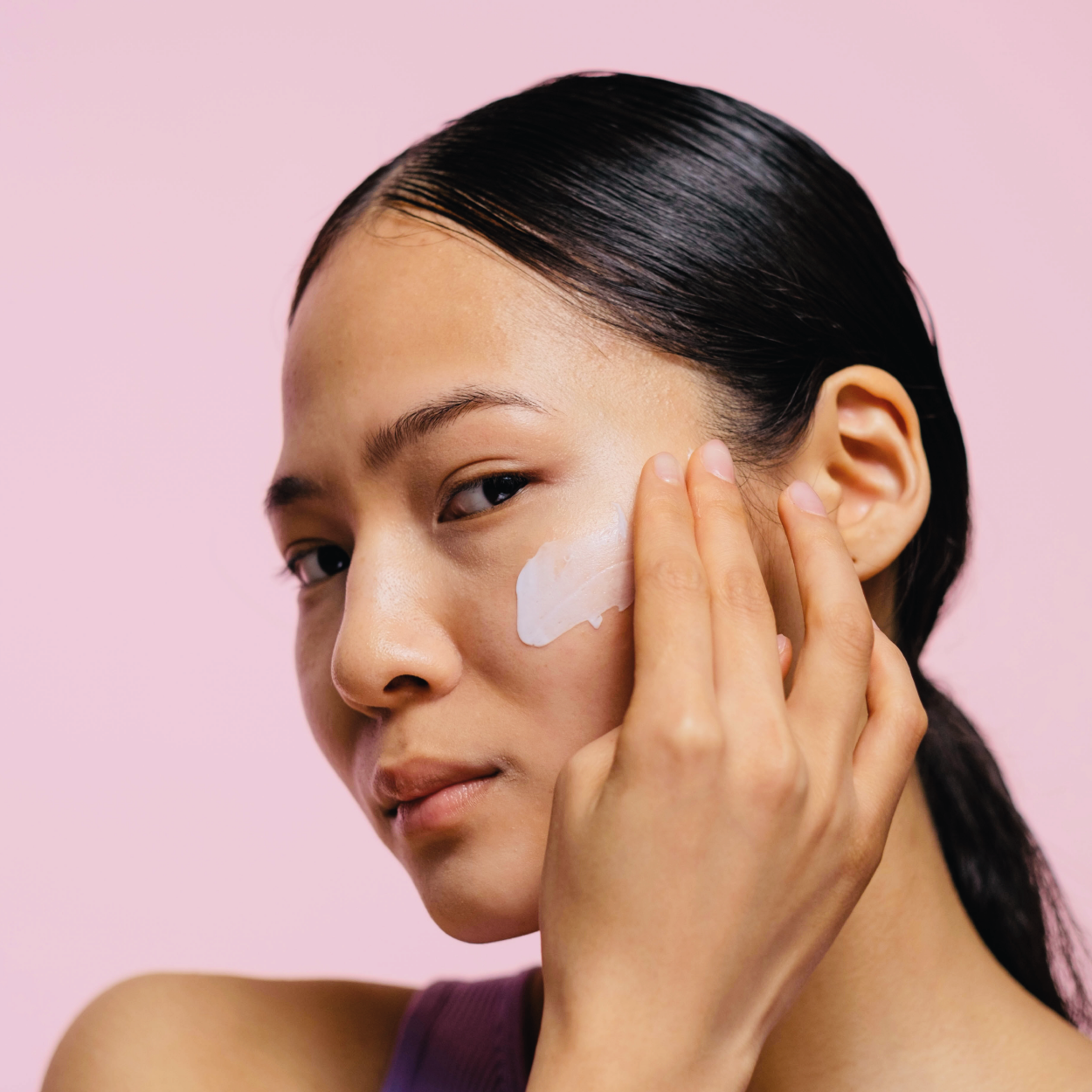
REALTALK: EFFECTS OF THE PILL ON YOUR CYCLE AND SKIN
Written by Céline from FEMALIGN
10. November 2023
Although the use of the anti-baby pill among young women* has decreased significantly in recent years, the pill is still the most common form of contraception in Germany (apart from condoms). But truthfully, how many of us are taking the pill or have taken it at least once without really knowing how it actually works!?
Since we ant to help you not having to admit that anymore, we will do a little deep dive about the effect of the pill (hint: there are several versions of the pill) on the cycle and the skin. After all, that's why you're here, aren't you?
To be able to explain how the pill affects the cycle and the skin, you first have to understand that there are different versions of the pill - not all pills are and work the same!
There are three main types of pills: the combination pill (the "classic" pill), the micro pill and the mini pill.
The combination pill is a combination of artificial progesterone and estrogen. The micro pill is also a combination compound of artificial progesterone and estrogen, but it is lower in dosage than the classic combination pill. In contrast, the mini pill is a mono compound containing only progesterone, but no estrogen.
Because the different pill forms have different compositions or lower dosages, they also have different effects on the cycle and the skin.
Okay, enough talked, let's dive into the different pill forms and their effect on the cycle and the skin.
COMBINATION AND MICRO PILL
The artificial progesterone and estrogen used in both the combination and mini pill act similar to the body's own hormones estrogen and progesterone (female sex hormones), which are an important part of your natural cycle.
Taking a combination compound basically tells your brain that there are already enough hormones in your body. This suppresses the release of the body's own hormones.
As a result, no egg cell can mature and no ovulation can take place, so that (ideally) you cannot get pregnant. At the same time, the build-up of your uterine lining is suppressed, so that no fertilized egg could nest here either. Combination compounds also change your cervical mucus in a way that it is impermeable for sperm and thus makes pregnancy almost impossible.
If no egg can mature and no ovulation can take place, there can be no cycle. Combination pills therefore interfere massively with your cycle and suppress it almost completely. The bleeding that you have during the 7-day pill break after each blister is also not actual period bleeding, but a withdrawal bleeding. It occurs because there is a sudden hormonal stop during the pill break.
MINI PILL
Mini pills don't contain estrogen, only artificial progesterone. However, not all mini pills contain the same active ingredient of progesterone.
Mini pills with the progesterone Levonorgestrel thicken the mucous plug that closes the cervix. In contrast, mini pills containing the progesterone Desogestrel can also suppress ovulation. Regardless of the active ingredient used, all mini pills, just like combined pills, change the cervical mucus in a way that it is impermeable to sperm. They also affect the lining of the uterus in a way that no fertilized egg can implant.
Since mini pills do not contain estrogen, they generally have fewer side effects and interfere less with the cycle than combined pills, which contain both progesterone and estrogen.
Nevertheless, the mini pill still interferes with your cycle as artificial hormones are added to your body. Hence, even with the mini pill, you do not have a natural cycle.

THE COMMON MYTH "THE PILL IMPROVES THE SKIN"
You've probably heard many times that the pill improves your skin. Perhaps you take the pill specifically for your skin or know someone who takes or has taken the pill mainly for this reason. But is it even true that the pill can reduce acne?
Yes and no!
Not every pill can do this. In fact, only an anti-androgenic pill can improve acne, i.e. a pill that works against androgens (male sex hormones). This is because androgens (especially testosterone) stimulate sebum production, causing pimples and blemishes. Both combination and micro pills contain progesterone as well as estrogen. Since estrogen suppresses androgens in higher doses, most combination compounds have anti-androgenic effects and therefore reduce pimples and blemishes. Hence, if you take either the "classic" pill or the micro pill, your skin should actually improve.
The mini pill on the other hand does not contain estrogen, meaning that the anti-androgenic effect is basically not there. The mini pill therefore doesn't really help against acne and might even make it worse.
Although some pills can actually improve the appearance of your skin, each type of pill has a huge impact on your hormonal balance and therefore your natural cycle. We founded FEMALIGN so that you can improve your skin complexion in the long term without the pill - based on the 4 cycle phases of your natural cycle.


CREATED BY WOMEN.
We are Céline and Carolin, the founders of FEMALIGN. We take your skincare and well-being during your cycle to a new level.
